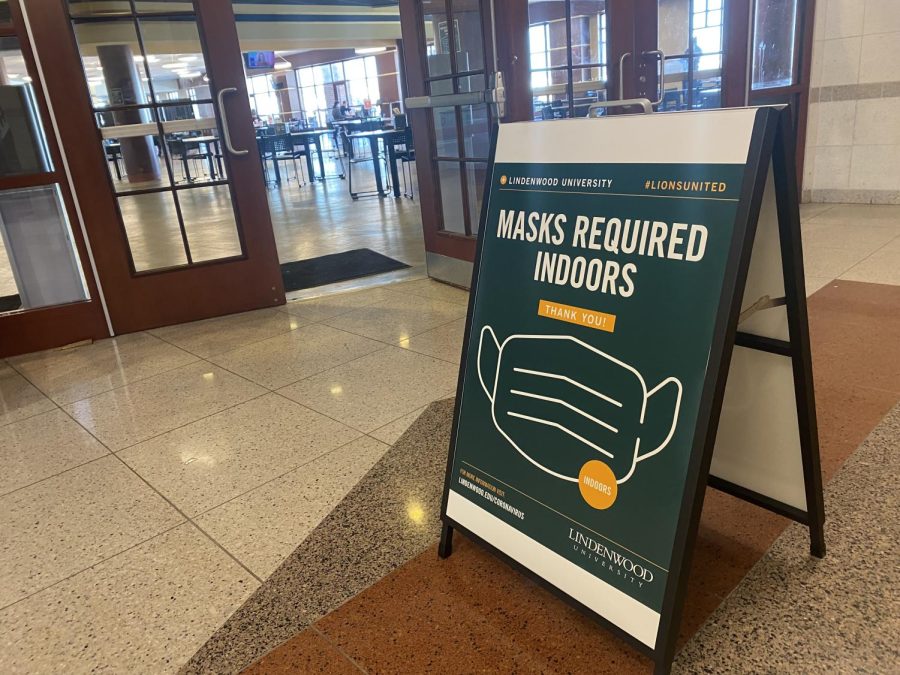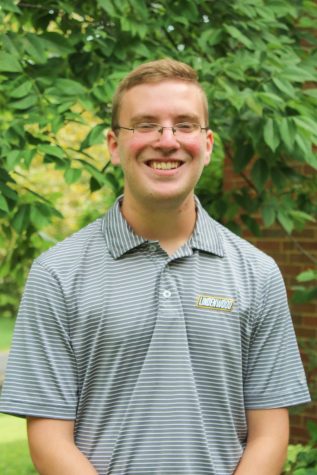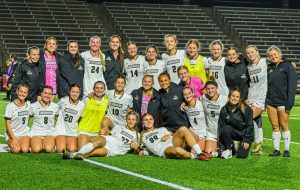Students get chance to benefit from proposed lawsuit settlement
Photo by Dominic Hoscher
A sign requiring everyone inside of Spellmann Center to wear a mask. Lindenwood’s COVID-19 policies led to the lawsuit against the university.
February 3, 2022
Students who enrolled in in-person classes at Lindenwood during the spring 2020 semester have a chance at getting some of $1.65 million being offered in a legal settlement.
Dylan Martin filed a lawsuit against Lindenwood on Aug. 24, 2020, when he was a student. In March, 2020, Lindenwood had transitioned from in-person classes to online as a result of COVID-19. Martin argued the transition deprived students of the advantages of in-person learning.
Students “lost the benefit of the education for which they paid, and/or the services or facilities for which their fees were paid, without having their tuition and fees refunded to them,” according to the complaint.
An email sent out this week to some Lindenwood students and alumni explained that a settlement fund of $1.65 million has been proposed to pay students who are part of this settlement class.
Those who make up this class include anyone who paid tuition and fees from the spring 2020 semester for “educational services” that would’ve been available for students in-person, but weren’t as a result of the COVID-19 pandemic. These fees were not refunded.
According to the email, students who are eligible for this fund “will receive a pro rata share of the Settlement Fund.” This number will be determined by the “total out-of-pocket amount of tuition and fees” that students paid in the spring 2020 semester.
Class members will automatically get a pro rata portion of the settlement fund, unless they request to be excluded from the settlement class, according to the email. This payment will go directly to the student’s institutional account via a credit.
For those who are no longer at the university, the payment will first be attributed to reducing the student’s debt by the pro rata payment amount the student is receiving, the email explained. Then, any remaining amount will be issued via check.
Inactive students can also choose to receive their payments via either Venmo or PayPal by going to the Lindenwood University Settlement website.
In the lawsuit, Martin argued that the student’s educational services had “diminished” as a result of the move online in the original complaint.
“The remote learning options are in no way the equivalent of the in- person education that Plaintiff and the putative class members contracted and paid for,” the suit reads. “As such, Defendant’s educational services have diminished in value significantly compared to the in- person education services that Defendant was providing prior to canceling in-person classes.”
A final approval hearing will be held on May 11, 2022, at 1:30 p.m. This will take place at the United States District Court for the Eastern District of Missouri, 111 South 10th Street, St. Louis, Missouri, 63102.









